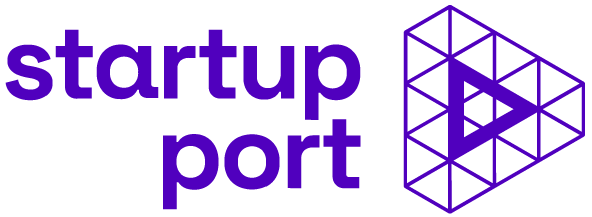At the Startup Port start-up camp, the individual components of knowledge-based business ideas are put to the test together and developed into a mature business model. The training takes place from February 23 to 25 at Leuphana University Lüneburg. We asked Henrik Hopp-Piepho, who is responsible for the event, 5 questions in advance.
The start-up camp offers founders an intensive three-day training course with canvas models, rapid prototyping and risk analyses to refine their business ideas and test their feasibility. Participants benefit from qualified training, exchange with other entrepreneurs, answers to start-up-related questions and individual consulting services, supplemented by the development of their own start-up personality.
5 questions for Henrik Hopp-Piepho:

Over the years, the start-up camp has evolved from a traditional frontal teaching to a practice-oriented workshop. Can you describe how this change has affected the learning and working experiences of the participants?
The focus on practical workshop modules enables the participants of the start-up camp to gain lasting learning experiences. Entrepreneurship in particular – the implementation, further development or adaptation of one’s own innovative business idea – thrives on trial and error, on working directly on projects. The brief impulses from the experienced speakers give participants the opportunity to apply suitable methods and tools directly to their project. Trying out the tools not only consolidates theoretical knowledge, but also ensures that the future founders are well equipped to go out into the “real” world.
Sustainability, business ethics and diversity are key topics at the start-up camp. How do you integrate these aspects into the program and how do you promote awareness and implementation of these values among the participants?
The last start-up camp (in September 2023) in particular showed that the topics of sustainability, business ethics and diversity are already firmly anchored in the minds of the participants. From the speakers’ point of view, we consciously create space for mutual appreciation, promote discussion on the topics mentioned above and experiment with methods that actively incorporate sustainability perspectives such as the Sustainable Development Goals into business model development. The great importance of diversity and inclusion also became clear during discussions about the integration of new employees – keyword: business ethics – in start-ups. These important topics are becoming increasingly important and have long been an integral part of the DNA of the start-up camp.
How do you measure the success of the start-up camp and how do you integrate the feedback from participants in order to continuously improve the program and adapt it to the changing needs and trends in the start-up world?
It is crucial for the Startup Port and Leuphana University to continuously improve the format. This is of course based on the feedback from the participants. On the last day of the start-up camp, the participants take the time to give feedback on the individual contents, the exercises and their own comments. The evaluation of the feedback shows that the event as a whole is seen as beneficial and very positive. There are also concrete indications of what can be improved. Among other things, the break times were frequently undercut in the last round. We will of course take these and other valuable suggestions into account at the next start-up camp.
The decision to use traditional PowerPoint presentations for the idea pitch is an interesting innovation. How did this affect the creativity and presentation style of the participants and were there any particularly memorable moments at the last camp?
The surprise that no slides were used in the final presentation was written all over the participants’ faces. Normally, a pitch includes a corresponding pitch deck. After a brief hesitation, however, the initial uncertainty gave way to creative ideas. Many participants clearly enjoyed trying out a form of presentation that differs from the classic PowerPoint presentation. To this day, I still have vivid memories of rousing storytelling pitches, entertaining theater games and lively rap performances. So it remains to be said that the variation of the pitch format not only promotes the participants’ wealth of ideas, but also creates lasting memories.
Can you tell us some success stories of former participants? How did the start-up camp specifically help to advance their business ideas and what long-term impact did participation have on their careers?
Time and again, new ideas emerge or develop as part of the camp, and these ideas endure even after the event. There are two exciting success stories to tell about the last run in September 2023. There is the startup CubeCrops, a project by three Leuphana students who want to use innovative vertical farming to supply the urban population with sustainably grown food. Initial sketches of ideas were developed further at the Startup Port’s start-up camp. Last November, the concept was named start-up idea of the year 2023 at the Lünale, the annual award ceremony for successful entrepreneurship in the district of Lüneburg.
Another success story is that of the Presada team, which was able to consolidate its innovative business idea at the start-up camp: Julia and Leon worked on the development of a presentation trainer based on artificial intelligence. This can provide feedback based on a sophisticated, self-learning algorithm. But that’s not all: based on the analysis, individual learning areas are identified and corresponding exercises are suggested. As part of the start-up camp, the two had several opportunities to “challenge” their business idea, i.e. to face critical questions from the other participants and further refine their idea through targeted feedback. In addition, the prototyping session in particular helped to break down the digital solution and present it to an interested audience. After the camp, the business idea continued to gain momentum and Julia and Leon are now not only successful participants in the AI Ideation Batch, but have also applied for an EXIST start-up grant with the support of Startup Port.
Registrations for the upcoming start-up camp (February 23-25) are possible until February 16 at the following link: https://startupport.de/events/gruendungscamp-2024/.
Related news: CubeCrops: from start-up camp to award-winning vegetable cultivation (10.01.2024)

